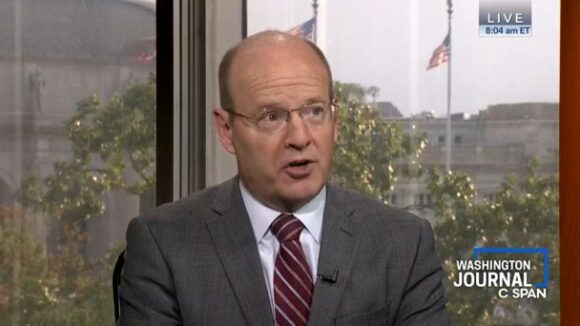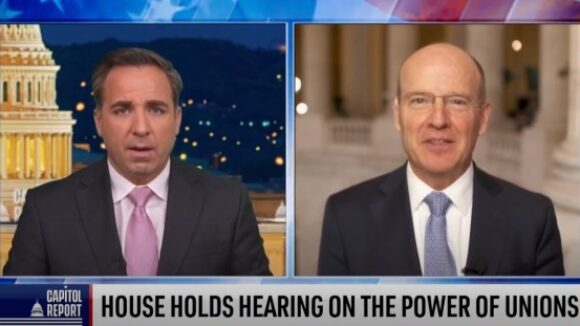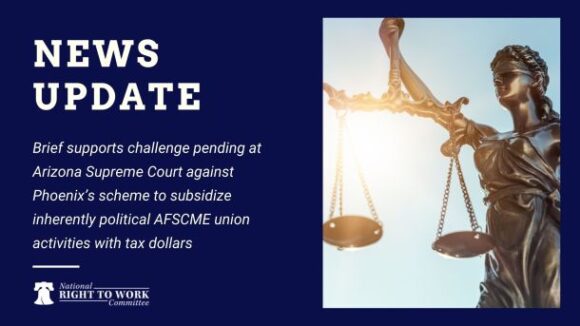Radical Union Is Hemorrhaging Members
As president of the National Right to Work Legal Defense Foundation as well as the Committee, Mark Mix is overseeing judicial…
Jim Huffman, the dean emeritus of Lewis & Clark Law School, argues persuasively that the US Circuit Court’s unanimous decision against President Obama’s three illegal appointment to the NLRB was absolutely correctly decided:
The Obama administration’s whatever-it-takes theory of constitutional governance hit a bump in the road Friday at the District of Columbia Circuit Court of Appeals. A unanimous three-judge panel of that court ruled (in Noel Canning v. NLRB) that President Obama’s appointments of three individuals to the National Labor Relations Board were invalid, and an order issued by the thus constituted NLRB is therefore void.
The court’s opinion, written by Judge David Sentelle, is a very careful analysis of the language of the Constitution relating to the appointment and confirmation of executive officers. He convincingly demonstrates that the modern practice, by presidents of both parties, of making controversial appointments when the Senate is adjourned for as few as three days is not what the framers intended by authorizing appointments during “the Recess” between sessions of Congress.
The Constitution was in part a response to the executive abuses of power and violations of individual liberty that the American colonists had endured under British rule. One of the ways the framers tried to rein in the president’s power was by making Senate confirmation of executive officers a default principle. It is ludicrous to contend that our nation’s founders would have authorized a method for appointments that allowed the president to effectively evade this default principle.
The clear purpose of the recess appointments clause was to allow for temporary appointments of essential officers when vacancies occurred during what were expected to be extended breaks between sessions. The clause was a practical solution to the challenge of keeping the government functioning in the event of vacancies, not a vehicle through which the president could make appointments everyone knew the Senate would not confirm if in session. Any suggestion to the contrary doesn’t pass the straight-face test.
Given President Obama’s persistent and unabashed insistence that his administration can’t wait on Congress and will therefore do whatever it takes to achieve his policy objectives, it seems the straight-face test will count for little over the next four years. And given the partisan divides in the House and Senate, it seems unlikely that Democrats and Republicans will come together to defend Congress’ constitutional turf. All of which makes the D.C. Circuit’s ruling that the president has exceeded his constitutional authority in appointments to the NLRB all the more important.
Because the D.C. Circuit’s ruling is in conflict with a decision of the 11th Circuit Court of Appeals, the question will likely end up in the Supreme Court. If and when it does, the justices will have another opportunity to contemplate whether ours is really a government of limited and divided powers.

As president of the National Right to Work Legal Defense Foundation as well as the Committee, Mark Mix is overseeing judicial…

Watch as Mark Mix Joins NTD News Live from the Capitol Rotunda

Brief supports challenge pending at Arizona Supreme Court against Phoenix’s scheme to subsidize inherently political AFSCME union activities with tax dollars